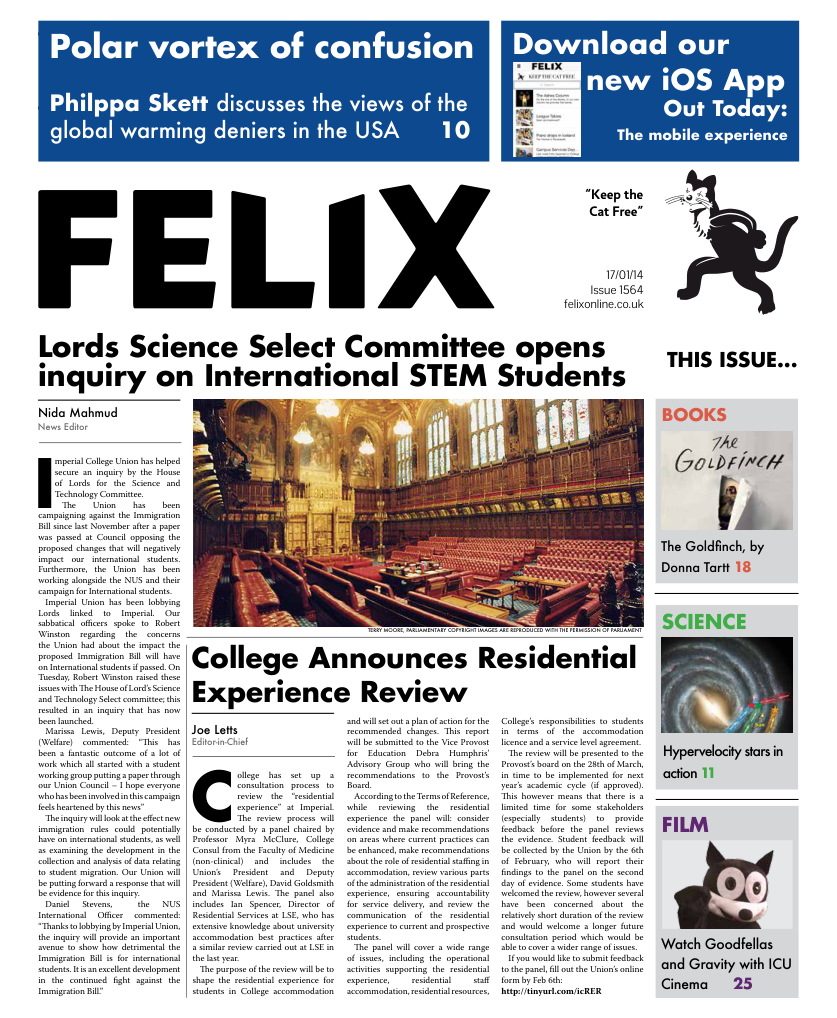Maybe you should sleep on it...
Did you, like everyone else, vow to get more sleep this year? Sleeping is common to all animals and a vital part of staying healthy and alert. However, when we sleep we are missing opportunities to be more productive, and by switching off we leave ourselves vulnerable to attack.
Did you, like everyone else, vow to get more sleep this year? Sleeping is common to all animals and a vital part of staying healthy and alert. However, when we sleep we are missing opportunities to be more productive, and by switching off we leave ourselves vulnerable to attack.
It must be a very important process to be worth all of these risks but what is actually happening while we sleep?
When we learn something new, connections between the synapses involved are strengthened so that the learned pathway will be activated more easily next time. This is the basis of memory.
Sleep is known to be important for consolidating short-term memories into long term memories, and it used to be thought that we did this by replaying and strengthening those connections during our sleep.
However, sleep experts at Wisconsin University have challenged the theory that sleeping strengthens the connections in our brain. Drs Tononi and Cirelli propose a ‘synaptic homeostasis hypothesis’ (SHY) which suggests that sleep is important for weakening the connections in our brain, and resetting the synapses back to normal (hence the reference to homeostasis).
However, if we are resetting all our synaptic connections, how do we remember anything? They study shows that significant learning experiences are dampened less than trivial experiences; overall those connections will be stronger relative to the rest. This also helps to explain the phenomena of ‘smart forgetting’ where our brain rids itself of unimportant details that accumulate each day.
But why would our brains need to reset? One reason is an energy benefit. To transmit a signal across a synapse neurons must release chemical neurotransmitters. Stronger connections release more neurotransmitters and this requires more energy. By dampening down all of our synaptic connections we reduce the energy demands on the cell without losing the relative strength of the signal.
Another reason has to do with the fact that nerve cells are essentially binary – either they fire an impulse or they don’t. They will only fire an impulse when they are stimulated above a certain threshold level, either by other neurons or by sensory inputs. If the synaptic connection is made stronger between two neurons then less of a stimulus is required to trigger the threshold in the receiving neuron. This means that old learning would drown out possible new connections and interfere with our ability to learn new things.
The new SHY hypothesis helps to answer several questions that the ‘active strengthening’ hypothesis couldn’t. Essentially the old idea was that while asleep, ‘replays’ of recent waking activity patterns in the synapses would ‘instruct’ learning.
But these replays have been seen to occur while we are awake, so why would sleep be so necessary? If there are also many other spontaneous firings that occur, how does our sleeping brain distinguish these from genuine replays? Furthermore, replays during sleep decline rapidly after the first hour. If their purpose is to strengthen our memory then why do they fade so quickly?
With the SHY hypothesis, a feedback method has been proposed so that as the neurons fire spontaneously through the night, the stronger connections preserve themselves and are dampened less than weak ones. This explains how the learning could be easily preserved.
Tononi and Cirelli have taken into account evidence from behavior, physiological studies and computer simulations too, and so far their hypothesis looks promising. However they have acknowledged that it could be wrong, particularly if we find out that synaptic resetting could occur while we are awake. For example, having only some circuits of our brain engaged on a task and the ‘offline’ ones resetting themselves would suggest that something else important is going on while we sleep, something that cannot occur whilst we are awake.
This study is just one of many that is looking at the reasons behind why we sleep, and there are still lots of unresolved mysteries as to why we need our recommended eight hours a night.
However, according to the Great British Sleep Survey 2012 most of us are only averaging 5.1 hours, so if reading this hasn’t sent you to sleep yet, go and get an early night!
DOI: 10.1016/j.neuron.2013.12.025






